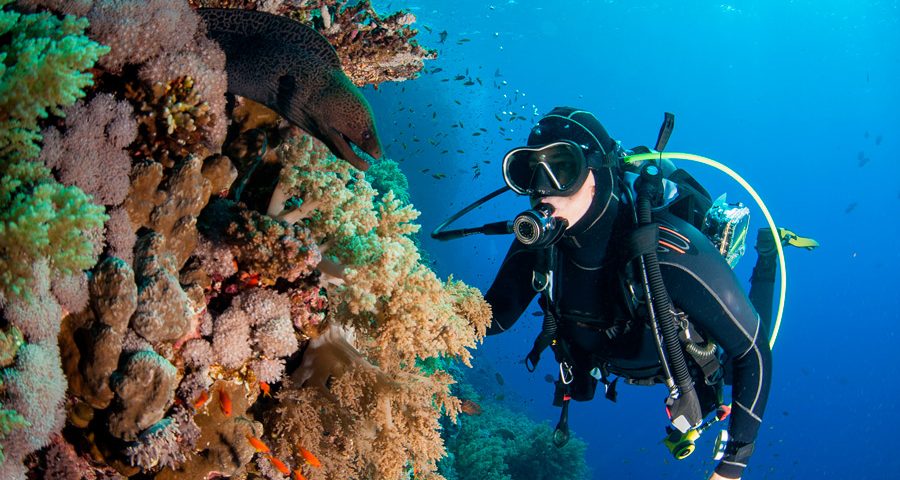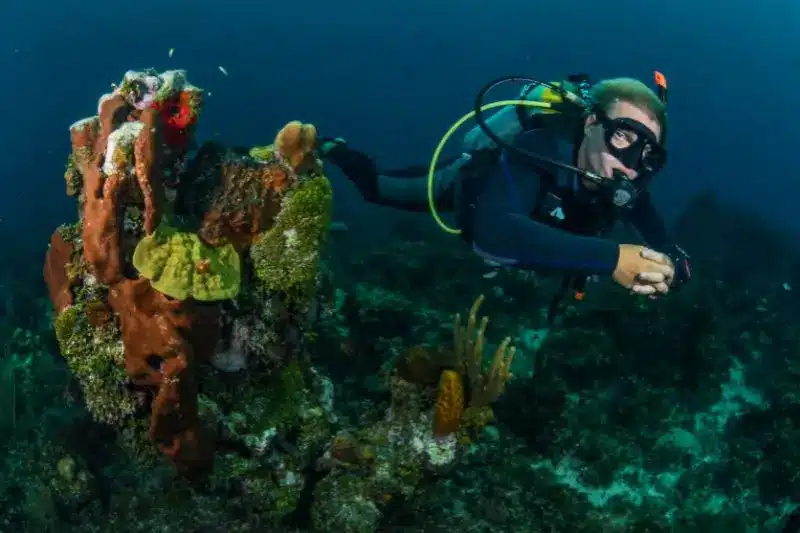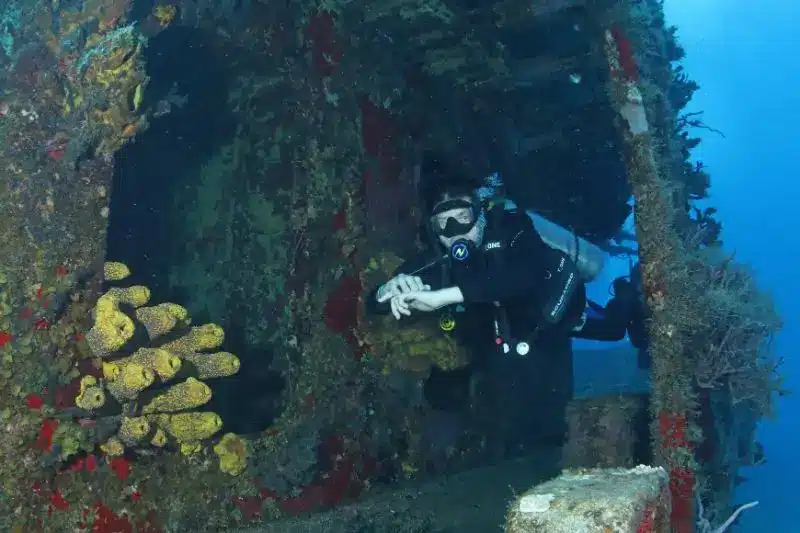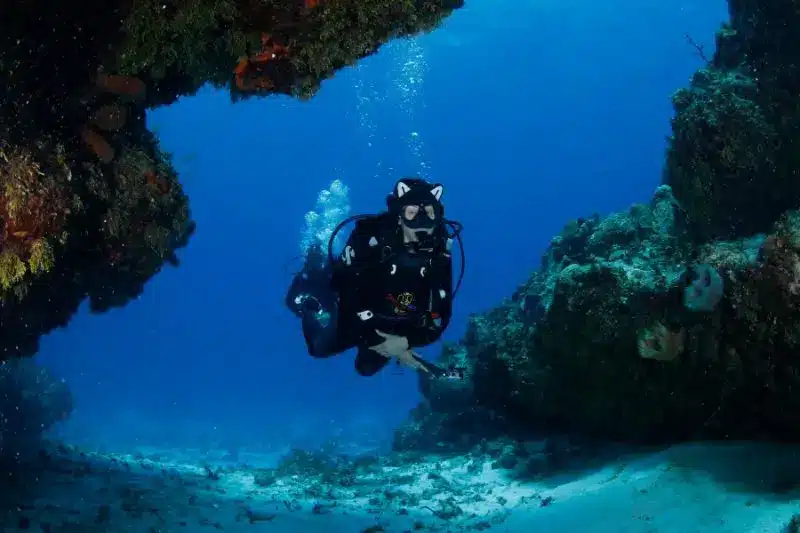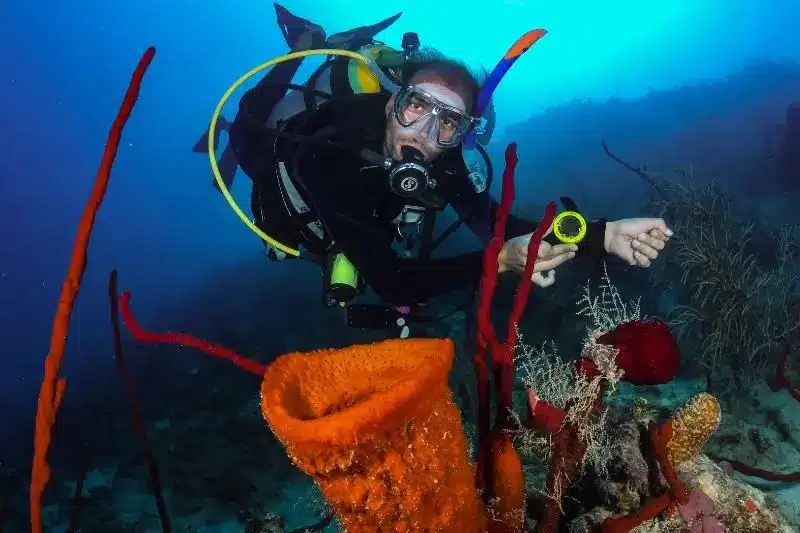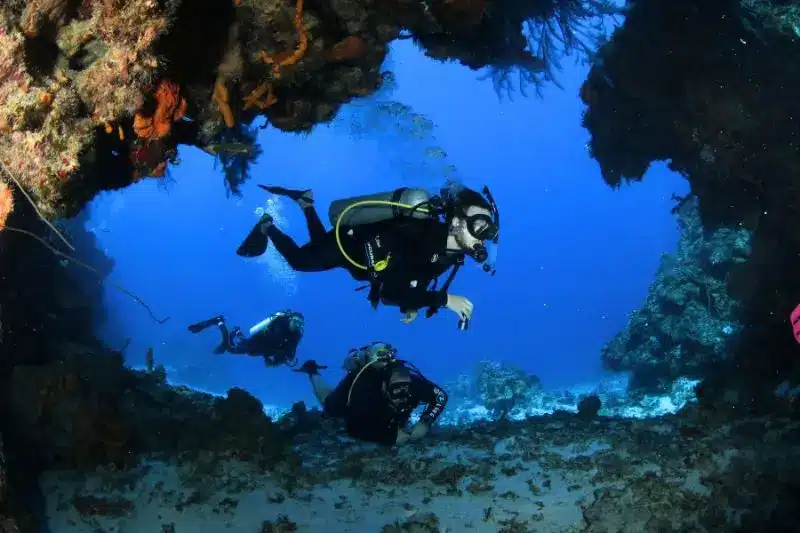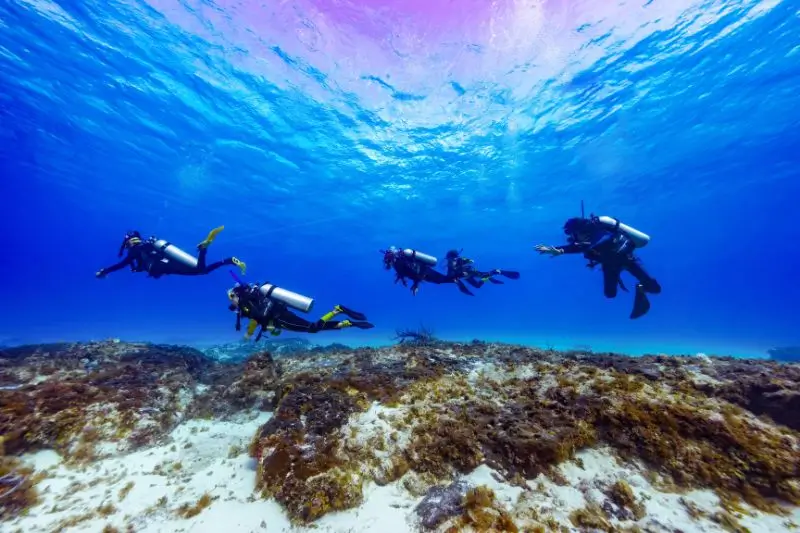Scuba diving rules. Yep, those rules that let you enjoy diving to the fullest, with confidence and peace of mind.
Check this out. Let me tell you a quick story.
Robert. That friend we all have. The one who thinks he’s invincible. First day of diving in Cozumel. “Rules? What for?” He ignores the scuba diving rule about checking your gear before getting in. He jumps in without putting on his fins. Result: the second he hits the water. His eyes nearly pop out from the shock.
Luckily it was just the fins and not the air supply. And yes, he promised never to skip any of the basic rules of scuba diving again.
This isn’t about scaring you. It’s about enjoying diving.
Here, you’re going to get the scuba diving rules. Clear. Simple. No weird jargon. Forget the technical mumbo-jumbo, I’m sure you know me well enough to know that’s not my style.
Rules aren’t here to limit you. They’re here to open a world of possibilities. To let you enjoy marine life safely. To help you master your buoyancy, your air, and your time underwater. From the basic rules of scuba diving to the famous rule of thirds diving, every rule is a tool that makes you a better diver. (Scuba diving safety rules, scuba diving and flying rules, rule of thirds diving… all of them count.)
Want to dive safely, have fun, and feel like the king of the reef?
Keep reading.
Ready?
Don’t miss this. This guide could change your next dives.
You’ll discover that scuba diving rules aren’t just theories… they’re pure common sense to help you dive better, go further, and yes, show off twice as much on the surface.




